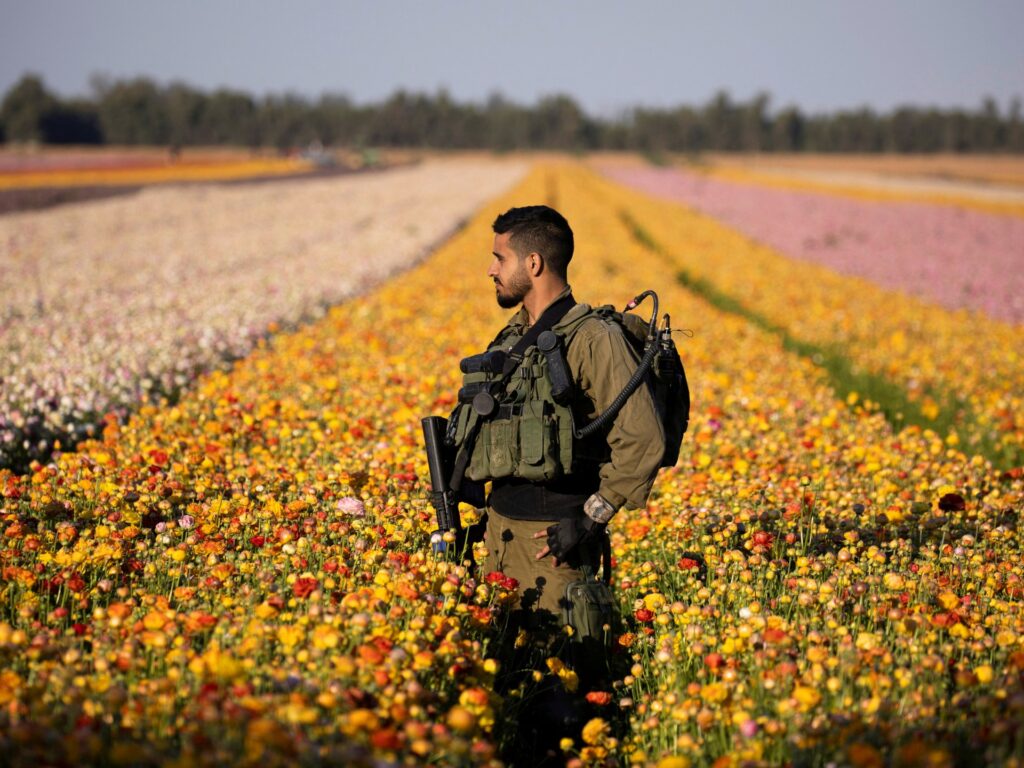1/4/2024–|Last updated: 1/4/202411:31 AM (Mecca time)
Mehdrin, an agricultural investment company and a major exporter of citrus and other agricultural products in Israel, announced a loss of more than 160 million shekels ($43.8 million) for the third quarter of 2023, amid expectations of more negative impacts due to the war on Gaza.
In its report, Mehdrin warned that the war on the Gaza Strip that broke out early last October had a “major material impact on the agricultural sector in Israel in general, and on the border area of the Gaza Strip and the north of the country in particular,” and thus on businesses. Company.
The Israeli “Globes” website, which specializes in economics, quoted the company’s report, saying that the huge loss in the third quarter was due to the decline in the value of “Mehadrin’s” assets and the company’s abandonment of lands that did not generate profits.
The company says that its management has developed a strategy to improve the efficiency of its agricultural activity in Israel, which includes abandoning areas where losses are recorded and expanding the scope of its activity in profitable areas.
Regarding the damage caused by the war, “Mahdrin” says that its revenues depend mainly on the citrus and avocado harvest season in Israel, and it fears a strong blow in this aspect that will appear in the results of the last quarter of the year.
“Mahdrin” owns orchards and farms with an area of 4,000 dunams (40,000 square metres) in the Gaza Strip border area. According to the company’s statement, its crews were unable to reach these orchards and farms until the end of last November, while Some of them have become accessible Last December, major damage was discovered, including the destruction of the irrigation system and warehouses, in addition to damage to seasonal crops.
The company says that most harvest workers are usually residents of the Palestinian territories and foreign workers.
The percentage of workers available to the company decreased sharply, as some of them were called up for military mobilization as “reservists,” and foreign workers (mainly from Thailand) left the country, at a time when Israel prevents Palestinians from entering.
As a result, the company employed half the usual number of workers at the harvest, and half of these were unskilled workers (volunteers and ordinary workers), which greatly affected the efficiency of the harvest.
According to the company, the productivity of a volunteer worker is equivalent to about 10% of the productivity of a skilled worker. In addition, workers’ wages increased by 40% due to the labor shortage, as well as the cost of bringing them from different parts of the country.
Farmers in the settlements of the Gaza Strip and the Western Negev are facing direct and indirect damage, and they are joined by farmers whose fields and orchards are located in the Upper Galilee, close to the Lebanese border, adding that the damage is severe, because many foreign workers have left Israel, and Palestinian workers are not allowed to enter it.
Show data The Israeli Central Bureau of Statistics stated that farms in the Gaza Strip constitute 30% of the land allocated for growing vegetables in Israel.
The Globes website had previously published a report in which it talked about the importance of the Gaza Strip lands for agricultural food security and the Israeli market.
The area surrounding the Gaza Strip is known as the “Israeli vegetable patch” and also contains poultry and livestock farms, in addition to fish farms.
The head of the Farmers Union, Amit Yifrach, was quoted as saying that the Gaza Strip produces:
- 75% of vegetables consumed in Israel.
- 20% of fruit.
- 6.5% of milk.
- 70% of the tomato crop.
- 37% of carrot and cabbage growing areas.
- 60% of potato cultivation.
- Although only 9.5% of the orchards and orchards are located in the cover settlements, 59% of the country’s lemon orchards are located in the region, and about 30% of the orange orchards.


